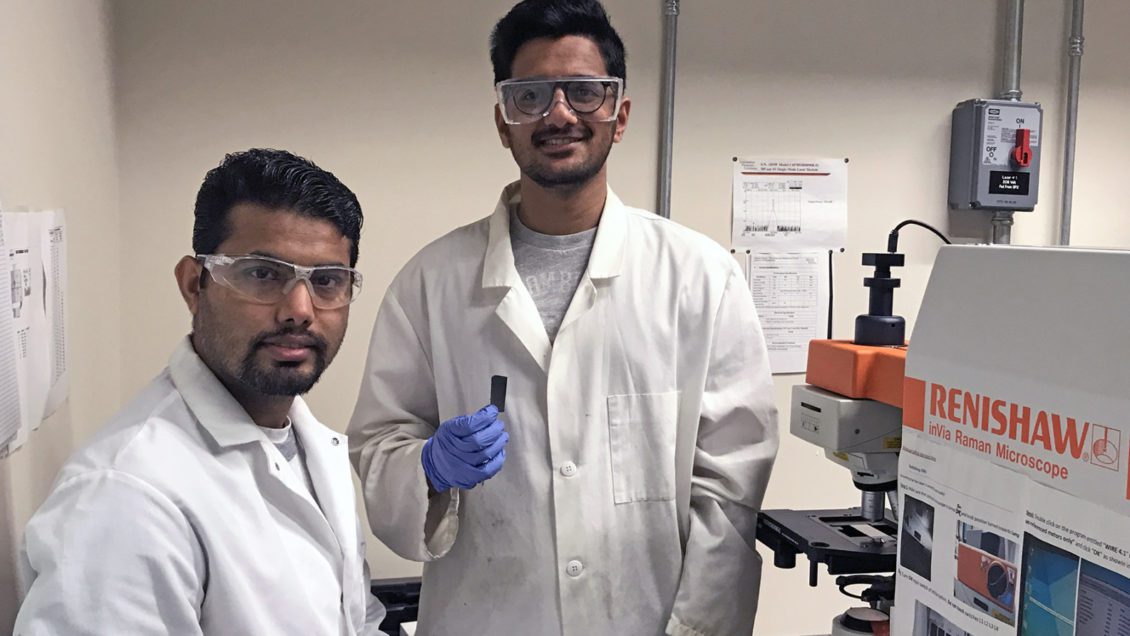The American Institute of Physics (AIP) “Scilight” featured physics assistant professor Rama Podila’s latest cancer-detection biosensor work on World Cancer Day (Feb. 4, 2020). Podila and his graduate students Bipin Sharma and Prakash Parajuli developed a sensing technique to detect up to femtomoles of a particular protein (uPA) that indicates cancer metastasis.

The team combined quantum mechanical density functional theory calculations, nanomaterials, and principles of spectroscopy to achieve a new sensing technique called “Analyte-induced disruption of luminescence quenching (AIDLuQ)” that is rapid and more efficient compared to traditional assays. Their sensor is based on paper-based, graphene-gold nanoparticles.
By further refining the technology, the team aims to create an inexpensive hand-held, point-of-care device capable of detecting and monitoring various forms of cancer, particularly in low- and middle-income countries. They conducted their work at Clemson’s Nanomaterials Institute; it is published in Nanoscale 11 (29), 14010-14015 and Biointerphases DOI: 10.1116/1.5128889.
Get in touch and we will connect you with the author or another expert.
Or email us at news@clemson.edu

